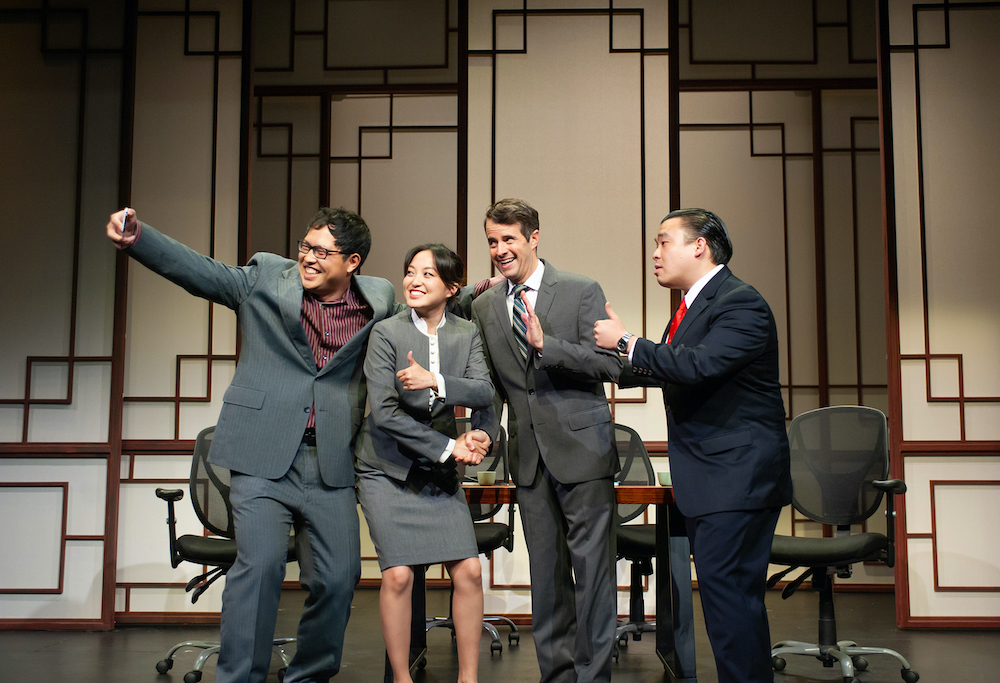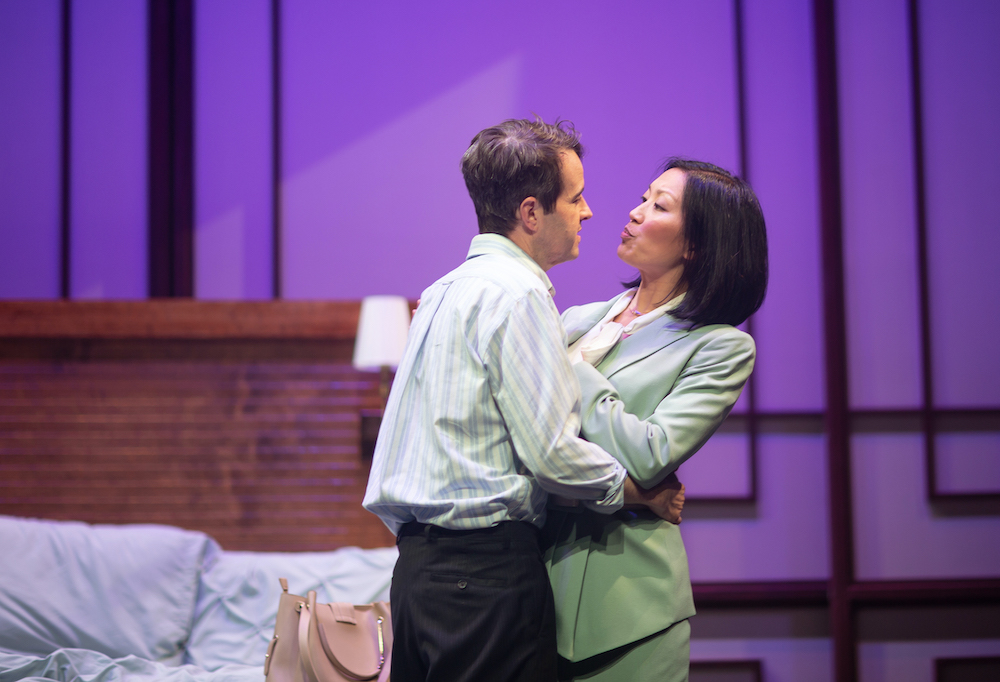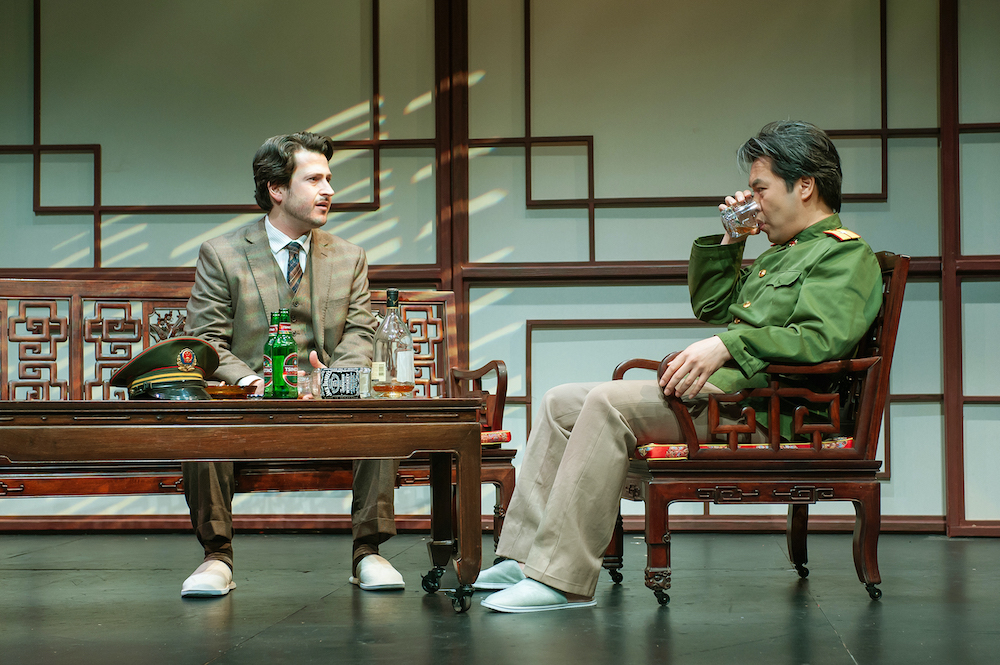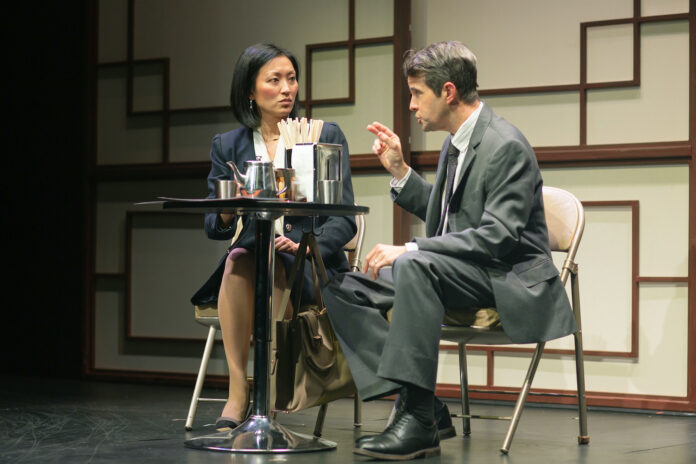Amongst the many enamel pins and buttons on my jacket is one in 16-bit video game font reading “All Your Base are Belong to Us.” It’s been over 30 years since the Western world first meme’d that poorly-translated Japanese dialogue, yet its relevance has only grown in the age of Google Translate. With globalization at such a point that the US seems to have exported mass shootings, such awkward translations are now the norm. Americans, in particular, expect AI to do the heavy lifting, or for some non-English speaker to sound like a cast member from Yellowstone—should they express their thoughts in another language, we seem to reason, they must not be saying anything of value. US-backed capitalism won’t stop until the entire world is a place where everyone spells the words “color” and “humor” with no “u” after the “o.”
Then there’s China, which holds most of Uncle Sam’s debt, in addition to doing the majority of our manufacturing. This marriage of convenience will most likely end in divorce; the military kind. ‘Til then, these lands of ugly capitalists and hypocritical commies continue to grease each other’s wheels—no matter how much the world would benefit from more ethical and sustainable alternatives.

This hypocrisy is central to David Henry Hwang’s Chinglish (through June 10 at the SF Playhouse), which begins with American businessman Daniel (Michael Barrett Austin) making one point clear to his American audience: “When doing business in China, always bring your own translator.” We then bounce back three years to the Midwesterner’s time doing just that. Daniel’s attempting to win a contract for his company to improve accessibility signs in the town of Guìyáng, due to them currently being mistranslated amongst the various Chinese dialects (a restroom for people with disabilities callously refers to them as “deformed people.”) He needs the approval of Minister Cai Guoliang (Alex Hsu) to make this happen. Assisting Daniel is British-born translator Peter (Matthew Bohrer), who has been in the country 19 years, moving from teacher to “consultant”—or, so he says. Cai shows interest in Daniel’s proposal, but Vice-Minister Xi Yan (Nicole Tung) isn’t won over as easily. This leads her to meet with Daniel in private to discuss a deal that could potentially be to their mutual benefit, although possibly more to hers.
It’s to Hwang’s credit that he’s able to keep his story entertaining, even when it succumbs to cliché. The inevitable affair between Daniel and Yan doesn’t make much narrative sense beyond the usual “we need this same-sex couple to copulate” trope (all the more egregious coming from the writer of M. Butterfly.) Granted, we later learn that Yan has an ulterior motive to bedding this doofy Yank, but we’re still meant to believe that her feelings for him are sincere.
Still, watching Daniel stare in confusion as Yan goes on long Chinese-only tangents (subtitles are projected onto Andrea Bechert’s sliding-door-inspired set) make for great comedy—as usual, the non-English’s speaker’s grasp of English is better than the reverse. What’s more, Tung—who one might remember from Colonialism is Terrible, but Phở is Delicious at the Aurora—commands her each and every scene. Austin’s awkwardness seems to extend beyond his character to the actor himself realizing he’s outmatched. Tung informs Yan’s stoicism with humor, frustration, and a cunning insight that carries the entire play.

In fact, the play really soars when Hwang satirizes both inter-language translation as well as its necessity in international relations. A running joke is that Minister Cai constantly has to replace his translators because someone is disappointed with their interpretations. This starts with the bookish Miss Qian (one of several characters played by the ever-talented Sharon Shao), who misinterprets Daniel’s calling Chicago’s Smith & Wollensky his “second home” as meaning he literally lives at the renowned steakhouse. Even funnier is when a scene-stealing Phil Wong (is there any other kind?) appears in some of the most awkward man-child attire Becky Bodurtha could find as the DS-playing relative of Cai’s called in to translate at the last minute. Add to that an hilarious scene where Daniel is lauded—yes, lauded—for his active role in the Enron scandal, and much of this play could easily double as a sitcom pilot.
Yet, it’s not without pathos. Much of it comes from Yan’s “cold” view of her business-like marriage conflicting with Daniel’s Western ideas of romance and “happily ever after.” One of the best scenes comes as the play nears its climax and Cai finds role and life in transition. He has no one to open up to but Peter, with whom he’s had previously dealings that weren’t entirely kosher. Cai is determined to meet his future with his head held high, but needs to confess his trepidation to someone—anyone—so why not the morally-dubious Brit whom he’s known for nearly two decades? It’s a very moving sequence made all the better by the subtle direction of Jeffrey Lo, who brought the same nuanced guidance to the Playhouse last year with The Paper Dreams of Harry Chin (also starring Shao.)

As the second show I saw after my first (and, hopefully, last) COVID quarantine, I figured one of the Playhouse’s “masked matinées” would be as safe a bet as any. To their credit, their HVAC system continues to kick ass, with my Aranet4 reading CO² levels no higher than 636ppm from my balcony seat—and that’s from a two-hour-plus show. Still, the “masked matinée” is more of a concept than a hardline rule, as there was no effort to enforce the rule on patrons who spent the entire show barefaced. (Incidentally, I stood up after the show and noticed old-fashioned mushroom-like displacement vents under the seats, installed after the 1918 Influenza. Further proof that updating HVAC should be priority everywhere.)
At its best, Chinglish is an hilarious examination of how multilingual knowledge can literally and figuratively open one up to an entire world they would otherwise have disregarded. Its examination of US and Chinese hypocrisies veers dangerously close to “both sides”-style lip service, its emphasis on character often saves it. It doesn’t hurt that most of those roles are brought to vivid (and hilarious) life by a talented cast under skilled direction. As commentary on international relations, it isn’t as profound as it thinks. As a satire of two would-be globalizers saying both more and less than they’d intended, it’s entertaining throughout.
CHINGLISH runs through June 10. SF Playhouse. Tickets and more info here.







